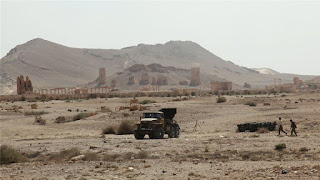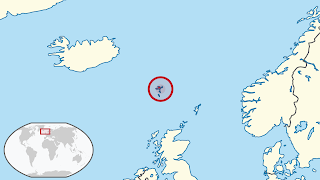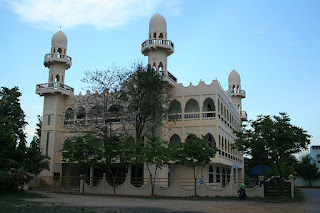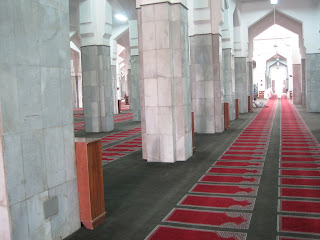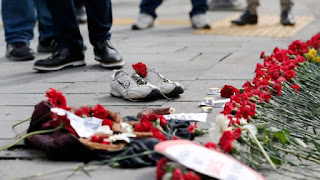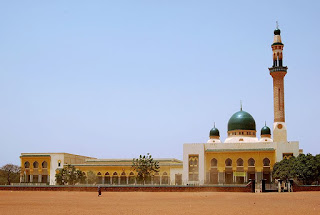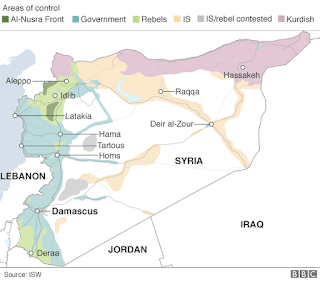In spite of his noble standing among the Quraysh, Abu Talib, an uncle of the Prophet, was quite poor. He had a large family and did not have enough means to support them adequately. His poverty-stricken situation became much worse when a severe drought hit the Arabian peninsula. The drought destroyed vegetation and livestock and, it is said, people were driven to eat bones in the struggle for survival.
It was during this time of drought, before his call to prophethood, that Muhammad said to his uncle, al Abbas: "Your brother, Abu Talib, has a large family. People as you see have been afflicted by this severe drought and are facing starvation. Let us go to Abu Talib and take over responsibility for some of his family. It will take one of his sons and you can taken another and we will look after them."
"What you suggest is certainly righteous and commendable," replied al-Abbas, and together they went to Abu Talib and said to him: "We want to ease some of the burden of your family until such time as this distressing period has gone." Abu Talib agreed.
"If you allow me to keep Aqeel (one of his sons older than Ali), then you may do whatever you like ," he said.
It was in this way that Muhammad took Ali into his household and al-Abbas took Jafar into his. Jafar had a very close resemblance to the Prophet. It is said there were five men from the Hashim clan who resembled the Prophet so much, they were often mistaken for him. They were: Abu Sufyan ibn al-Harith and Qutham ibn al-Abbas both of whom were cousins of his. As-Saib ibn Ubayd, the grandfather of Imam ash Shafi: al-Hasan ibn Ali, the grandson of the Prophet, who resembled him most of all; and Jafar ibn Abi Talib.
Jafar stayed with his uncle, al-Abbas, until he was a young man. Then he married Asma bint Umays, a sister of Maymunah who was later to become a wife of the Prophet. After his marriage, Jafar went to live on his own. He and his wife were among the first persons to accept Islam. He became a Muslim at the hands of Abu Bakr as-Siddiq, may God be pleased with him.
The young Jafar and his wife were devoted followers of Islam. They bore the harsh treatment and the persecution of the Quraysh with patience and steadfastness because they both realized that the road to Paradise was strewn with. thorns and paved with pain and hardship.
The Quraysh made life intolerable for them both and for their brethren in faith. They tried to obstruct them from observing or performing the duties and rites of Islam. They prevented them from tasting the full sweetness of worship undisturbed. The Quraysh waylaid them at every turn and severely restricted their freedom of movement.
Jafar eventually went to the Prophet, peace be upon him, and sought permission for himself and a small group of the Sahabah, including his wife, to make hijrah to the land of Abyssinia. With great sadness, the Prophet gave his permission. It pained him that these pure and righteous souls should be forced to leave their homes and the familiar and cherished scenes and memories of their childhood and youth, not for any crime but only because they said, "Our Lord is One. Allah is our Lord."
The group of Muhajirin left Makkah bound for the land of Abyssinia. Leading them was Jafar ibn Abi Talib. Soon they settled down in this new land under the care and protection of the Negus, the just and righteous ruler of Abyssinia. For the first time since they became Muslims, they savoured the taste of freedom and security and enjoyed the sweetness of worship undisturbed.
When the Quraysh learnt of the departure of the small group of Muslims and the peaceful life they enjoyed under the protection of the Negus, they made plans to secure their extradition and their return to the great prison that was Makkah. They sent two of their most formidable men, Amr ibn al-Aas and Abdullah ibn Abi Rabiah, to accomplish this task and loaded them with valuable and much sought after presents for the Negus and his bishops.
In Abyssinia, the two Quraysh emissaries first presented their girls to the bishops and to each of them they said: "There are some wicked young people moving about freely in the King's land. They have attacked the religion of their forefathers and caused disunity among their people. When we speak to the King about them, advise him to surrender them to us without his asking them about their religion. The respected leaders of their own people are more aware of them and know better what they believe."
The bishops agreed.
Amr and Abdullah then went to the Negus himself and presented him with gifts which he greatly admired. They said to him: "O King, there is a group of evil persons from among our youth who have escaped to your kingdom. They practice a religion which neither we nor you know. They have forsaken our religion and have not entered into your religion. The respected leaders of their people - from among their own parents and uncles. and from their own clans - have sent us to you to request you to return them. They know best what trouble they have caused."
The Negus looked towards his bishops who said: "They speak the truth, O King. Their own people know them better and are better acquainted with what they have done. Send them back so that they themselves might judge them."
The Negus was quite angry with this suggestion and said: "No. By God, I won't surrender them to anyone until I myself call them and question them about what they have been accused. If what these two men have said is true, then I will hand them over to you. If however it is not so, then I shall protect them so long as they desire to remain under my protection."
The Negus then summoned the Muslims to meet him. Before going, they consulted with one another as a group and agreed that Jafar ibn Abi Talib and no one else should speak on their behalf.
In the court of the Negus, the bishops, dressed in green surplises and impressive headgear, were seated on his right and on his left. The Qurayshite emissaries were also seated when the Muslims entered and took their seats. The Negus turned to them and asked:
"What is this religion which you have introduced for yourself and which has served to cut you off from the religion of your people? You also did not enter my religion nor the religion of any other community."
Jafar ibn Abi Talib then advanced and made a speech that was moving and eloquent and which is still one of the most compelling descriptions of Islam. the appeal of the noble Prophet and the condition of Makkan society at the time. He said: "O King, we were a people in a state of ignorance and immorality, worshipping idols and eating the flesh of dead animals, committing all sorts of abomination and shameful deeds. breaking the ties of kinship, treating guests badly and the strong among us exploited the weak. "We remained in this state until Allah sent us a Prophet, one of our own people whose lineage, truthfulness, trustworthiness and integrity were well-known to us. "He called us to worship Allah alone and to renounce the stones and the idols which we and our ancestors used to worship besides Allah.
"He commanded us to speak the truth, to honor our promises, to be kind to our relations, to be helpful to our neighbors, to cease all forbidden acts, to abstain from bloodshed. to avoid obscenities and false witness, not to appropriate an orphan's property nor slander chaste women.
"He ordered us to worship Allah alone and not to associate anything with him, to uphold Salat, to give Zakat and fast in the month of Ramadan.
"We believed in him and what he brought to us from Allah and we follow him in what he has asked us to do and we keep away from what he forbade us from doing.
"Thereupon, O King, our people attacked us, visited the severest punishment on us to make us renounce our religion and take us back to the old immorality and the worship of idols.
"They oppressed us, made life intolerable for us and obstructed us from observing our religion. So we left for your country, choosing you before anyone else, desiring your protection and hoping to live in Justice and in peace m your midst."
The Negus was impressed and was eager to hear more. He asked Jafar: "Do you have with you something of what your
Prophet brought concerning God?" "Yes," replied Jafar.
"Then read it to me," requested the Negus. Jafar, in his rich, melodious voice recited for him the first portion of Surah Maryam which deals with the story of Jesus and his mother Mary.
On hearing the words of the Quran, the Negus was moved to tears. To the Muslims, he said: "The message of your Prophet and that of Jesus came from the same source..." To Amr and his companion, he said:" Go. For, by God, I will never surrender them to you." That, however, was not the end of the matter. The wily Amr made up his mind to go to the King the following day "to mention something about the Muslims belief which will certainly fill his heart with anger and make him detest them" On the morrow, Amr went to the Negus and said:
"O King. these people to whom you have given refuge and whom you protect say something terrible about Jesus the son of Mary (that he is a slave). Send for them and ask them what they say about him."
The Negus summoned the Muslims once more and Jafar acted as their spokesman. The Negus put the question: "What do you say about Jesus, the son of Mary?"
"Regarding him, we only say what has been revealed to our Prophet ," replied Jaffar. "And what is that?" enquired the Negus.
"Our Prophet says that Jesus is the servant of God and His Prophet. His spirit and His word which He cast into Mary the Virgin."
The Negus was obviously excited by this reply and exclaimed: "By God, Jesus the son of Mary was exactly as your Prophet has described him"
The bishops around the Negus grunted in disgust at what they had heard and were reprimanded by the Negus. He turned to the Muslims and said:
"Go, for you are safe and secure. Whoever obstructs you will pay for it and whoever opposes you will be punished. For, by God, I would rather not have a mountain of gold than that anyone of you should come to any harm."
Turning to Amr and his companion, he instructed his attendants: "Return their gifts to these two men. I have no need of them." Amr and his companion left broken and frustrated. The Muslims stayed on in the land of the Negus who proved to be most generous and kind to his guests.
Jafar and his wife Asma spent about ten years in Abyssinia which became a second home for them. There, Asma gave birth to three children whom they named Abdullah, Muhammad and Awn. Their second child was possibly the first child in the history of the Muslim Ummah to be given the name Muhammad after the noble Prophet, may God bless him and grant him peace.
In the seventh year of the hijrah, Jafar and his family left Abyssinia with a group of Muslims and headed for Madinah. When they arrived the Prophet was just returning from the successful conquest of Khaybar. He was so overjoyed at meeting Jafar that he said: "I do not know what fills me with more happiness, the conquest of Khaybar or the coming of Jafar."
Muslims in general and the poor among them especially were just as happy with the return of Jafar as the Prophet was. Jafar quickly became known as a person who was much concerned for the welfare of the poor and indigent. For this he was nicknamed, the "Father of the Poor". Abu Hurayrah said of him: "The best of men towards us indigent folk was Jafar ibn Abi Talib. He would pass by us on his way home and give us whatever food he had. Even if his own food had run out, he would send us a pot in which he had placed some butterfat and nothing more. We would open it and lick it clean..."
Jafar's stay in Madinah was not long. At the beginning of the eighth year of the hijrah, the Prophet mobilized an army to confront Byzantine forces in Syria because one of his emissaries who had gone in peace had been treacherously killed by a Byzantine governor. He appointed Zayd ibn Harithah as commander of the army and gave the following instructions: "If Zayd is wounded or killed, Jafar ibn Abi Talib would take over the command. If Jafar is killed or wounded, then your commander would be Abdullah ibn Rawahah. If Abdullah ibn Rawahah is killed, then let the Muslims choose for themselves a commander."
The Prophet had never given such instructions to an army before and the Muslims took this as an indication that he expected the battle to be tough and that they would even suffer major losses.
When the Muslim army reached Mutah, a small village situated among hills in Jordan, they discovered that the Byzantines had amassed a hundred thousand men backed up by a massive number of Christian Arabs from the tribes of Lakhm, Judham, Qudaah and others. The Muslim army only numbered three thousand.
Despite the great odds against them, the Muslim forces engaged the Byzantines in battle. Zayd ibn al-Harithah, the beloved companion of the Prophet, was among the first to fall. Jafar ibn Abi Talib then assumed command. Mounted on his ruddy-complexioned horse, he penetrated deep into the Byzantine ranks. As he spurred his horse on, he called out: "How wonderful is Paradise as it draws near! How pleasant and cool is its drink! Punishment for the Byzantines is not far away!" Jafar continued to fight vigorously but was eventually slain. The third in command, Abdullah ibn Rawahah, also fell. Khalid ibn al-Walid, the inveterate fighter who had recently accepted Islam, was then chosen as the commander. He made a tactical withdrawal, redeployed the Muslims and renewed the attack from several directions. Eventually, the bulk of the Byzantine forces fled in disarray.
The news of the death of his three commanders reached the Prophet in Madinah. The pain and grief he felt was intense. He went to Jafar's house and met his wife Asma. She was getting ready to receive her absent husband. She had prepared dough and bathed and clothed the children. Asma said: "When the Messenger of God approached us, I saw a veil of sadness shrouding his noble face and I became very apprehensive. But I did not dare ask him about Jafar for fear that I would hear some unpleasant news. He greeted and asked, 'Where are Jaffar's children?' I called them for him and they came and crowded around him happily, each one wanting to claim him for himself. He leaned over and hugged them while tears flowed from his eyes.
'O Messenger of God,' I asked, 'why do you cry? Have you heard anything about Jafar and his two companions?'
'Yes,' he replied. 'They have attained martyrdom.' The smiles and the laughter vanished from the faces of the little children when they heard their mother crying and wailing. Women came and gathered around Asma.
"O Asma," said the Prophet, "don't say anything objectionable and don't beat your breast." He then prayed to God to protect and sustain the family of Jafar and assured them that he had attained Paradise.
The Prophet left Asma's house and went to his daughter Fatimah who was also weeping. To her, he said: "For such as Jafar, you can (easily) cry yourself to death. Prepare food for Jafar's family for today they are beside themselves with grief."
Source : http://www.sunnah.org/history/Sahaba/jafar.html

